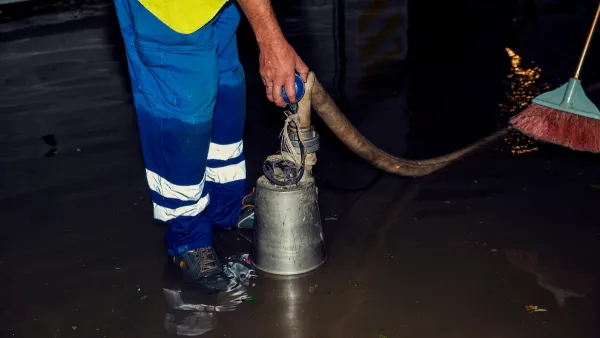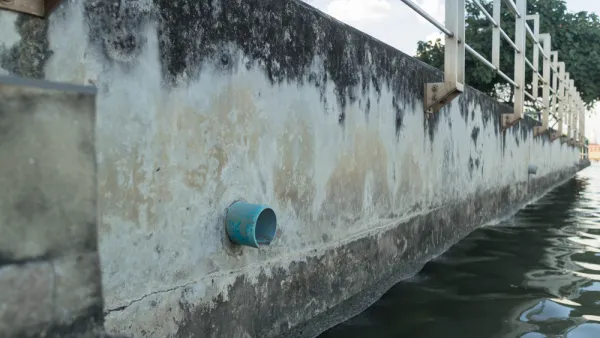Low-income Alabama residents who can't afford the cost of a functional septic tank run the risk of heavy fines and even arrest in addition to extremely unsafe conditions.

In a piece adapted from the New Yorker print magazine, Alexis Okeowo describes Alabama residents' lack of access to functional sewers and septic systems. Dense Black Belt soil, the namesake of the area, causes trouble for traditional septic tanks, which house waste until it can be broken down by microbes. Because of the difficulty in maintaining such a septic system, Okeowo says, 40% or more households don't have a proper sewage disposal system.
"The state of Alabama mandates that anyone who is not on a municipal sewer line—which includes eighty per cent of Black Belt residents—invest in a private waste-management system," writes Okeowo. "In Alabama, not having a functioning septic system is a criminal misdemeanor. Residents can be fined as much as five hundred dollars per citation, evicted, and even arrested," says Okeowo, highlighting the gravity of the situation.
The systems, which can cost up to $20,000 are not always easily afforded by some Alabama residents. "Floods carry sewage across people’s lawns and into their living areas, bringing with it the risk of viruses, bacteria, and parasites that thrive in feces. Studies have found E. coli and fecal coliform throughout the Black Belt, in wells and in public waters," writes Okeowo.
Okeowo's piece tells the story of the activism of Catherine Coleman Flowers to respond to the public health threat that are, "to some officials," Okeowo writes, "as much a matter of personal responsibility as of public health," noting their shirking of responsibility. Instead, Flowers sees the lack of comprehensive sanitation solutions as a product of a history of inequity in the region. "During the past several years, Flowers told me, she and her staff have helped a dozen families move into safer homes."
FULL STORY: The Heavy Toll of the Black Belt’s Wastewater Crisis

Analysis: Cybertruck Fatality Rate Far Exceeds That of Ford Pinto
The Tesla Cybertruck was recalled seven times last year.

National Parks Layoffs Will Cause Communities to Lose Billions
Thousands of essential park workers were laid off this week, just before the busy spring break season.

Retro-silient?: America’s First “Eco-burb,” The Woodlands Turns 50
A master-planned community north of Houston offers lessons on green infrastructure and resilient design, but falls short of its founder’s lofty affordability and walkability goals.

Test News Post 1
This is a summary

Analysis: Cybertruck Fatality Rate Far Exceeds That of Ford Pinto
The Tesla Cybertruck was recalled seven times last year.

Test News Headline 46
Test for the image on the front page.
Urban Design for Planners 1: Software Tools
This six-course series explores essential urban design concepts using open source software and equips planners with the tools they need to participate fully in the urban design process.
Planning for Universal Design
Learn the tools for implementing Universal Design in planning regulations.
EMC Planning Group, Inc.
Planetizen
Planetizen
Mpact (formerly Rail~Volution)
Great Falls Development Authority, Inc.
HUDs Office of Policy Development and Research
NYU Wagner Graduate School of Public Service




























